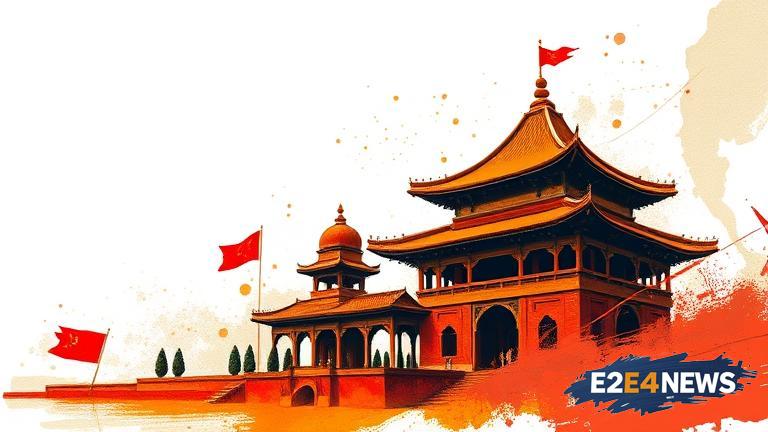The phrase ‘Hindi-Chini Bhai Bhai’ translates to ‘Indians and Chinese are brothers’ in English, symbolizing the friendly relations between India and China in the 1950s. This slogan was popularized during the Asian-African Conference in 1955, where Indian Prime Minister Jawaharlal Nehru and Chinese Premier Zhou Enlai emphasized the importance of solidarity and cooperation between the two nations. However, the relationship between India and China has been complex and tumultuous over the years. The two countries have a long-standing border dispute, which led to the Sino-Indian War in 1962. The war resulted in China gaining control of the Aksai Chin region, which is still a point of contention between the two nations. Despite the tensions, India and China have made efforts to improve their relations, with increased trade and cultural exchanges. In recent years, however, tensions have escalated due to China’s growing assertiveness in the region, including its claims in the South China Sea and its involvement in the China-Pakistan Economic Corridor. India has also been concerned about China’s increasing presence in the Indian Ocean and its growing ties with India’s neighboring countries. The Doklam standoff in 2017, where Indian and Chinese troops clashed over a disputed territory, further strained relations. The current tensions between India and China are not just limited to border disputes but also extend to trade and economic issues. India has been concerned about the large trade deficit with China and has imposed tariffs on several Chinese goods. China, on the other hand, has been investing heavily in India’s neighboring countries, including Pakistan, Sri Lanka, and Nepal, as part of its Belt and Road Initiative. The initiative has raised concerns in India about China’s growing influence in the region. Despite these tensions, there are still efforts to improve relations between the two nations. In 2018, Indian Prime Minister Narendra Modi and Chinese President Xi Jinping met in Wuhan, China, to discuss ways to improve relations and reduce tensions. The meeting was seen as a positive step towards improving relations, but the progress has been slow. The relationship between India and China is complex and multifaceted, with both countries having their own set of interests and concerns. While there are efforts to improve relations, the tensions and disputes between the two nations are likely to continue. The ‘Hindi-Chini Bhai Bhai’ era may be a distant memory, but it serves as a reminder of the potential for friendship and cooperation between India and China. As the two nations continue to navigate their complex relationship, it is essential to understand the historical context and the current tensions that shape their interactions. The future of India-China relations will depend on the ability of both nations to address their differences and find common ground. With the rise of nationalism and protectionism in both countries, the relationship is likely to be shaped by a complex interplay of domestic and international factors. As the world’s two most populous countries, India and China have a significant impact on global affairs, and their relationship will be closely watched by the international community. The India-China relationship is a critical aspect of global geopolitics, and its evolution will have far-reaching consequences for the region and the world. In conclusion, the ‘Hindi-Chini Bhai Bhai’ era may be over, but the relationship between India and China remains a vital and complex aspect of international relations. As the two nations continue to navigate their differences, it is essential to understand the historical context and the current tensions that shape their interactions.
Mon. Oct 27th, 2025
